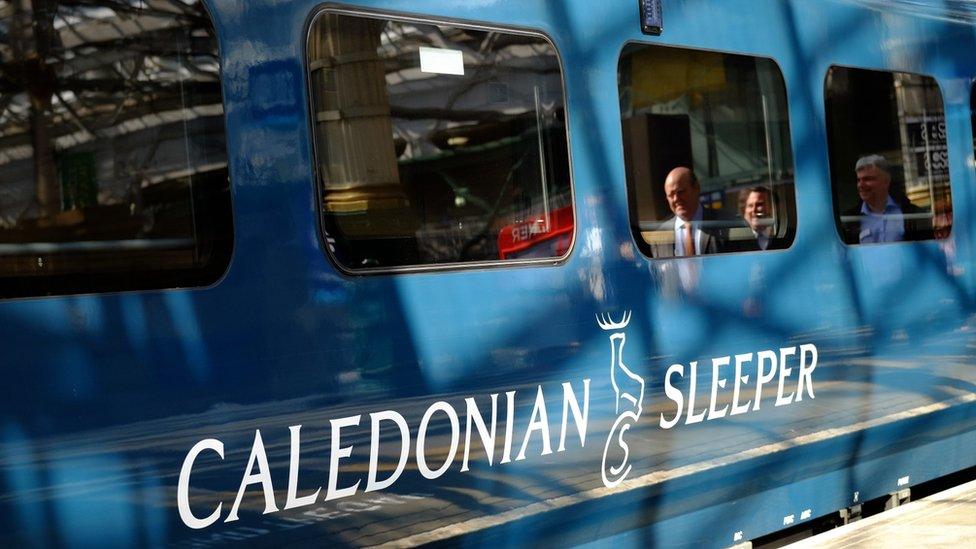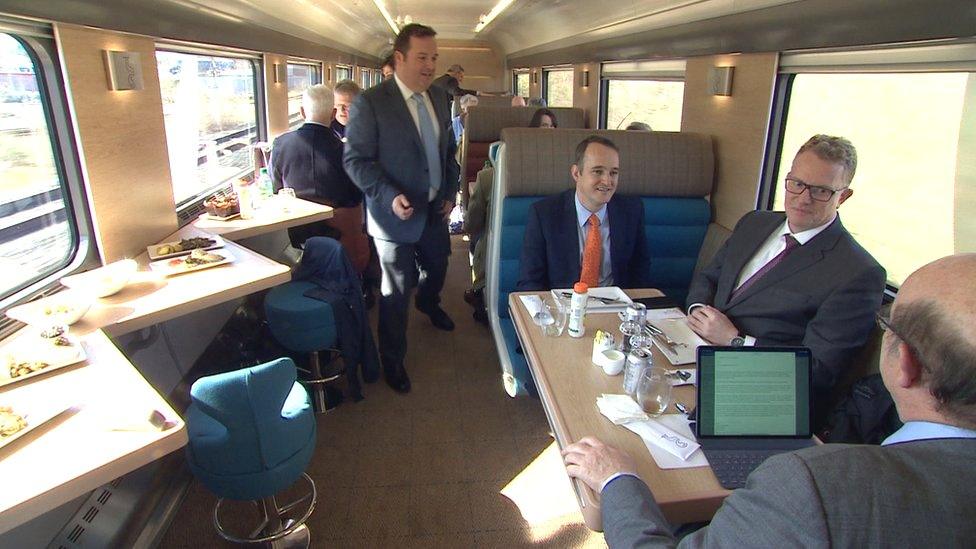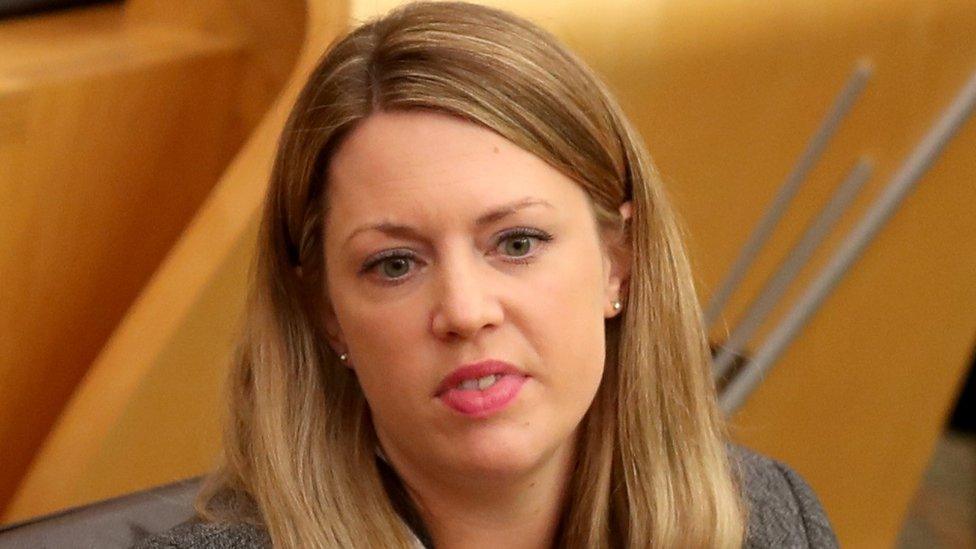Caledonian Sleeper contract to end seven years early
- Published

The Scottish government is terminating the contract to run the Caledonian Sleeper service seven years early.
Serco will stop operating the cross-border rail service in June 2023.
The company said it had tried to renegotiate the contract to put the loss-making service on "a more sustainable financial footing".
But Transport Minister Jenny Gilruth said its proposals had been rejected because they did not represent value for money to the public.
She added that Serco had "delivered well" and said it had significantly improved the service over the last seven years.
The Caledonian Sleeper, which has been operating in various forms since 1873, runs overnight trains between Scotland and London.
There is a Lowlander route between London and Glasgow and Edinburgh, and a Highlander route to Aberdeen, Inverness and Fort William.
The current 15-year franchise was awarded to out-sourcing giant Serco in a deal worth £800m. It had been due to run from 2015 to 2030.

A new fleet of trains was introduced three years ago
In 2019, Serco unveiled a new £150m fleet of trains which the company said would "transform" the journey. It said 75 new carriages were now in service.
John Whitehurst, managing director of its transport business, said it had inherited an "unreliable and outdated" fleet of carriages which dated back to the 1970s.
"We are extremely proud that under our leadership and management we have introduced new rolling stock and other significant innovations that have completely transformed the service," he said.
There was a clause in the contract which allowed Serco to try and renegotiate the terms through a process known as rebasing.
However, Mr Whitehurst said the two sides had been unable to reach an agreement.
"From Serco's point of view the service has been loss-making over the life of the contract and the proposals that we made to Transport Scotland were to put it on a more sustainable financial footing," he added.

Jenny Gilruth said the franchise agreement would be terminated next June
Ms Gilruth told the Scottish Parliament that the proposals had been rejected because they did not represent value for money to the public.
She said the franchise agreement would be terminated in June next year.
"Work is under way to determine arrangements for the continued provision of Caledonian Sleeper rail services beyond 25 June 2023, and this will be updated to parliament once determined," she said.
The SNP said the decision created an opportunity for the Scottish government to consider bringing the Sleeper into public hands, as it did with ScotRail earlier this year.
Mr Whitehurst said that unless other arrangements could be agreed, management of the Sleeper would be handed back to the Scottish government in June 2023.


The Caledonian Sleeper offers one of the great train journeys in the world, with passengers boarding in London and waking up in the Highlands. Or vice versa.
Today, though, this romantic ideal collides with commercial and political reality.
Half way through the franchise, Serco has tried to "rebase" or re-negotiate the deal.
Little wonder. Much has changed, not least because of the pandemic. These days, far more of us work from home.
That won't help the Sleeper attract the overnight commercial travellers who once formed a cornerstone of its business.
But Scottish ministers refuse to allow Serco to rewrite the contract on their own terms, saying that wouldn't give good value for public money.
So where does the Sleeper service go now?
Scotland's last big re-basing exercise saw Abellio stripped of the ScotRail franchise early. That led to a public operator taking charge.
The SNP's keen to see a change of direction, saying this is another chance to bring "Scotland's railway into Scotland's hands".
But the Transport Minister Jenny Gilruth said Serco had improved the Caledonian Sleeper service. So some may ask - would a public operator do the job as well as a proven private company?